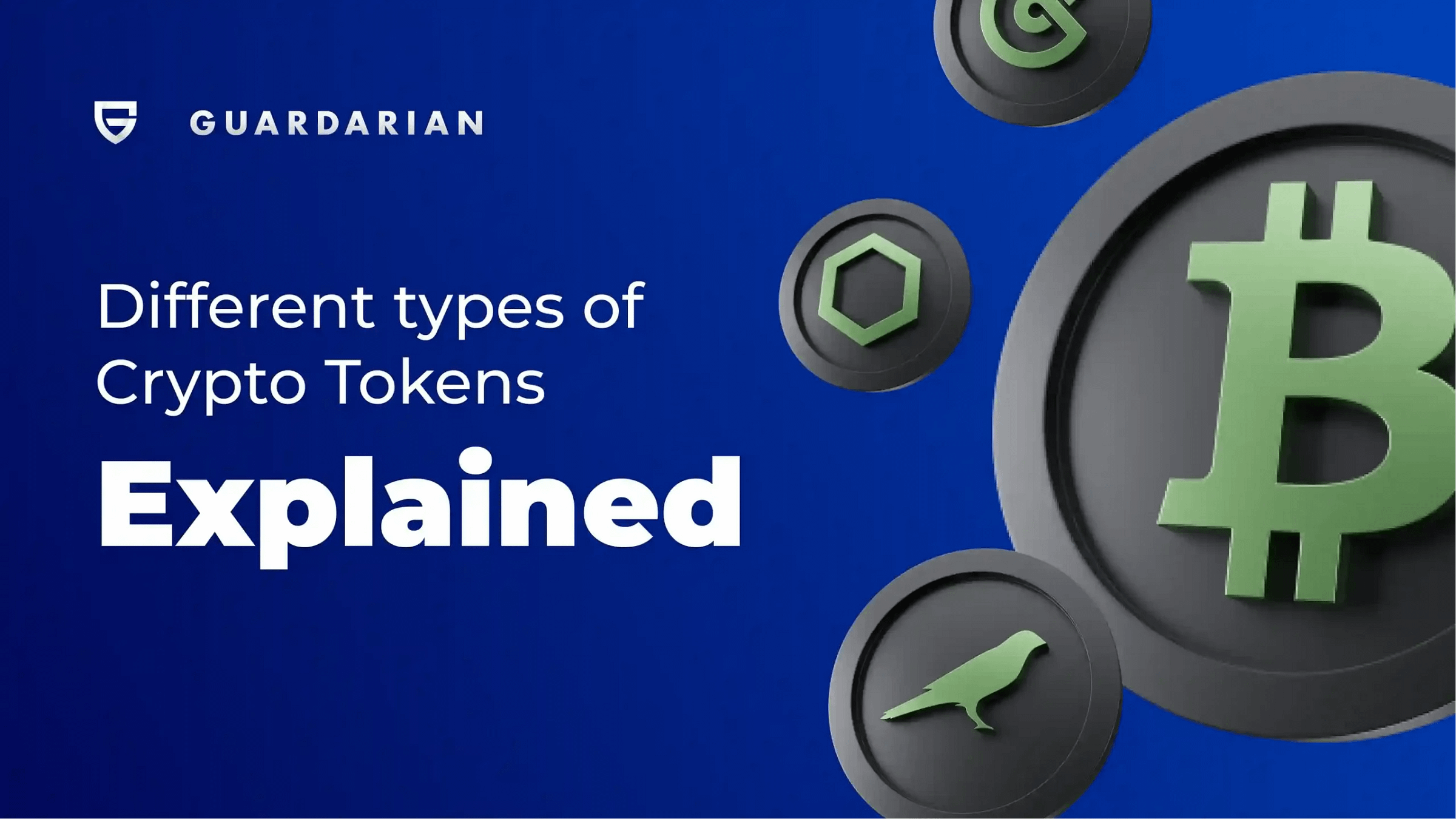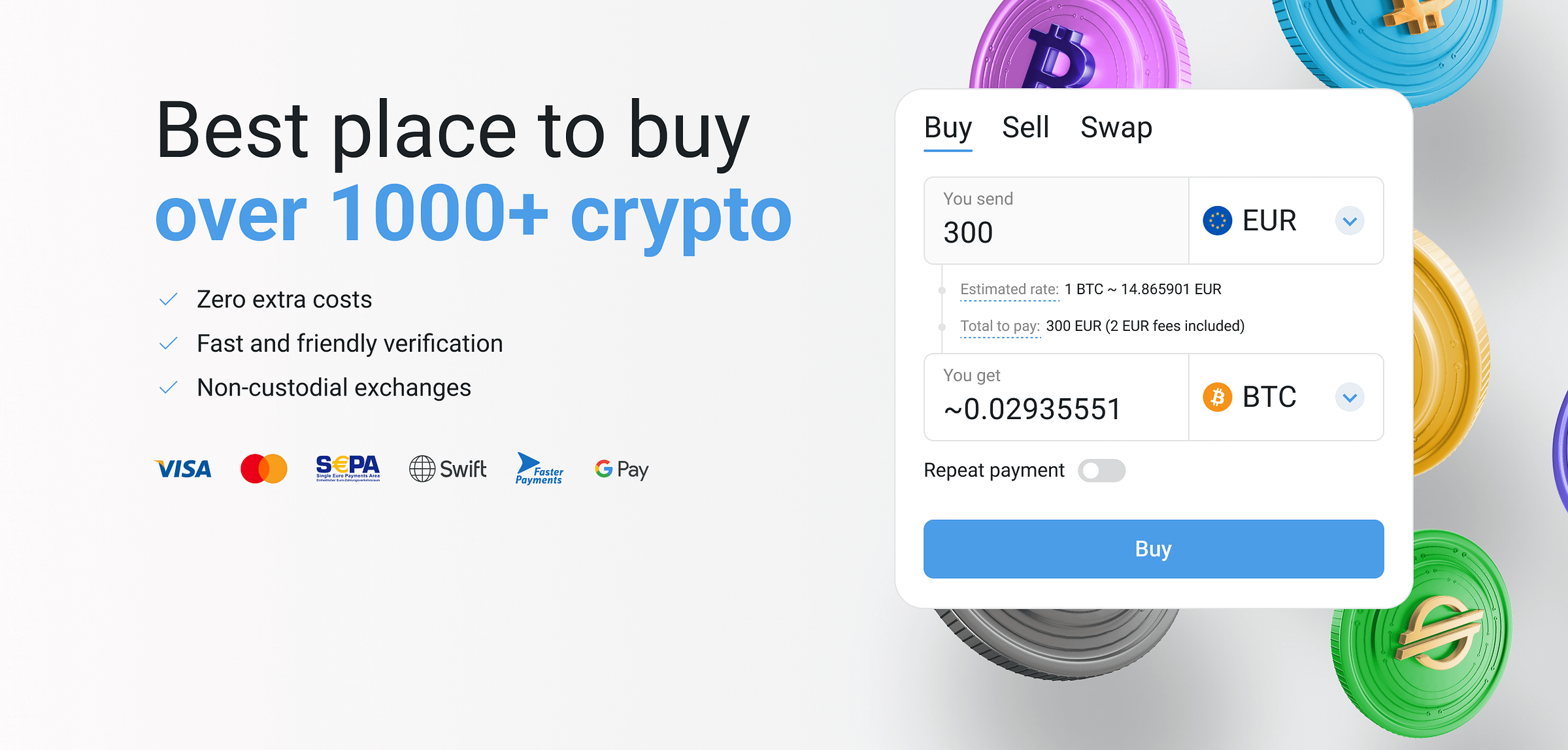Cryptocurrency has recently gained traction as a new way to store, transfer, and invest value. For all these purposes you can use crypto tokens – digital assets that represent a specific unit of value and can be traded on various platforms.
However, not all tokens are created equal – there are multiple types of tokens, each with unique characteristics and use cases.
In this article, we will dive into the different types of crypto tokens, including platform tokens, security tokens, transactional tokens, utility tokens, and governance tokens.
We will also explore the difference between crypto tokens and crypto coins and why understanding the different types of tokens is essential for anyone interested in investing in cryptocurrency.
But first, let’s start from the basics👇
What are Crypto Tokens?
The term “crypto token” refers to a digital asset that functions as a unit of value in a cryptocurrency network. Crypto developers create and govern different crypto tokens by employing blockchain technology, a decentralized digital ledger that securely and transparently records all transactions over a network of computers. 🌐
Crpyto tokens can represent various things, for instance:
- Digital money that users can use for blockchain transactions
- Digital assets that reflect ownership of something else, like digital art, or access to a service or an app
All crypto tokens have a common characteristic: Fungibility. It is the property that allows the exchange of multiple tokens for the same value.
Crypto tokens have several potential applications, such as a means of trade, value storage, and obtaining a limited service or goods. Cryptocurrency developers can use crypto tokens to fund a business or project and establish a Decentralized Autonomous Organization (DAO).
Due to the large number of cryptocurrencies out there, it can often become confusing for beginners to decide what to invest in. Luckily, all tokens can be divided into a few distinct groups.
Crypto Token vs. Crypto Coin
Before diving into the different types of crypto tokens, let’s briefly look at the difference between these and crypto coins.
Crypto tokens are digital assets that exist on top of a pre-existing blockchain. They do not have their own blockchain and instead use the infrastructure of another blockchain, such as Ethereum.
Conversely, crypto coins are digital assets with their own blockchain that can function as a medium of exchange. Bitcoin, Ethereum, and Litecoin are examples of crypto coins. They are decentralized and are mostly used as a means of payment.
Let’s now look at some examples of these crypto token groups, so it would be easier for you to navigate the crypto market. 👇
Different types of crypto tokens
Platform Tokens
Platform tokens use blockchain technology to provide decentralized applications (dApps) for various purposes. For example, Cosmos is a decentralized platform that allows apps and services to communicate with each other across different blockchains. ATOM is its platform token that enables the network to operate.
Using the underlying blockchain technology, platform tokens get protection and the capacity to facilitate transactions. A wide variety of sectors, from global advertising to online marketplaces, may benefit from platform tokens. This also includes gaming and digital collectibles.

Web3 developers often use platform tokens to create and deploy decentralized apps (dApps) and smart contracts. One such decentralized application that uses smart contracts to facilitate token swaps between users is Uniswap. UNI is the Uniswap protocol’s native crypto token.
Inheriting the robustness of the blockchain on which they run, platform tokens are better able to facilitate transactions and ensure their safety.
Examples of platform tokens include:
Security Tokens
Security tokens are cryptocurrency tokens that represent ownership of a tangible asset, such as stocks, bonds, or real estate. They fall under federal securities legislation as securities.
Securities are, in general, an instrument issued by a firm, trust, government, or other legal organization that memorializes an ownership interest and gives proof of a debt, a right to a share of profits, a right to distribute assets, or other similar legal rights. Bonds, debentures, notes, options, shares, and warrants are all securities that investors may freely exchange with one another.

Unlike a share of stock, the value of a security token is proportional to the asset’s value. This is when a token represents ownership of an off-chain asset like real estate, equipment, outstanding bills, or a company.
Alternatively, funding campaigns may also make use of security tokens.
Some of the most well-known security tokens are:
- Siacoin (SC)
- Props token (PROPS)
- Blockchain Capital (BCAP)
Transactional Tokens
Transactional tokens serve as a medium of exchange to enable transactions on blockchain networks. These are used pretty much like traditional money, however they provide additional benefits compared to Fiat currencies.
Bitcoin was originally created as a way of cheap and efficient money transfer, so it can be considered a transactional currency. Many other transactional currencies have been created since Bitcoin’s inception, many of which boast very low transaction fees & high transaction speeds.

Here are some notable cryptocurrencies that prioritize transaction speeds and low fees, making them stand out as a means of value transfer:
Utility Tokens
Utility tokens are digital assets that grant users access to a particular blockchain product or service. Initial coin offerings (ICOs) are a popular method for Web3 companies to distribute these tokens to the public to generate capital for new projects. Users may use utility tokens to purchase products or services or get access to certain features or functionality on a platform or ecosystem.
Utility tokens are like coupons or vouchers in that they reflect a monetary value. Purchasing the token grants the buyer the right to exchange it for a certain amount of access to the service or good.

Examples of utility tokens include:
Notably, the definition of a token as a utility token is not always clear-cut. The difference between utility, security, and other token types is a subject of continuing legal and regulatory discussion.
Governance Tokens
Governance tokens are a type of cryptocurrency that allows holders to vote on proposals and make decisions regarding a particular blockchain or decentralized platform. Blockchain developers often use such tokens in decentralized finance (DeFi) projects and decentralized autonomous organizations (DAOs).
One example of a governance token is MakerDAO’s MKR token. MKR holders can vote on proposals to change the platform’s monetary policy and risk management and on upgrades to the smart contracts that govern the platform.

In general, governance tokens support the decentralization of Web3 and give holders a say in the direction and development of a project. Governance token holders are incentivized to act in the project’s best interest, as the value of their tokens is directly tied to the project’s success.
Some cryptocurrencies that are used as governance tokens include:
How to buy Crypto Tokens?
There are many different platforms where you can buy crypto tokens in 2023. These vary greatly in terms of transaction fees, transaction speed, security and cryptocurrencies they offer.
But for the best experience we recommend you check out Guardarian.
With us you can buy over 1000 different cryptocurrencies using any major payment method, such as bank transfer or credit card.
We also don’t require registration, making the purchasing process super fast. Simply choose what to buy & how to pay – and your assets will be on their way to your wallet in no time!
Visit www.guardarian.com to know more. Or start right here ⬇️
The Takeaway
For an average person it may not be that important to distinguish between crypto coins and tokens, or different types of tokens. But it can prove to be helpful to be able to classify the various cryptocurrencies according to their purpose. This helps you get a better grasp of the ever-changing crypto market as well as make informed investment decisions.
The most common token types are as follows:
- Platform Tokens, such as Ethereum, serve as the basis for blockchain-based decentralized applications (dApps).
- Security Tokens are digital assets that reflect legal ownership of a physical or digital item, such as real estate, art, or corporate shares.
- Transactional Tokens, like Bitcoin, allow users to purchase products and services and serve as a means of exchange.
- Utility Tokens, such as Binance Coin, are incorporated into an existing system and utilized to access the protocol’s services.
- Governance Tokens, such as MakerDAO, power blockchain-based voting systems and help users determine the future course of decentralized organizations.
We hope this article helped you understand the world of blockchain a bit better. And if you want to get the latest market updates, informative articles and industry insights – make sure to follow us on social media.











